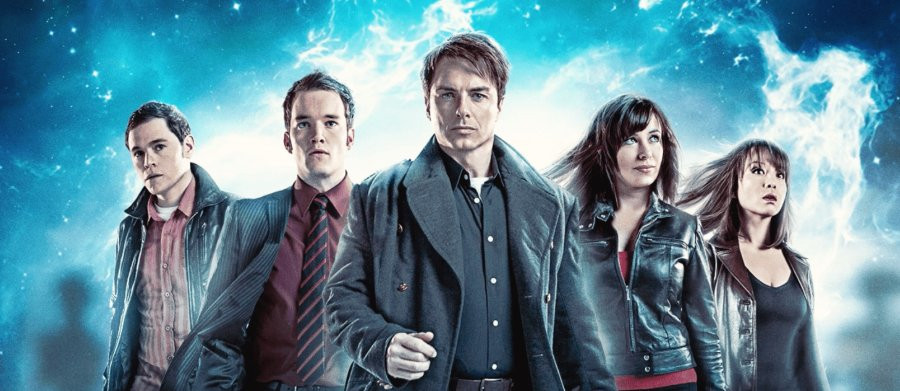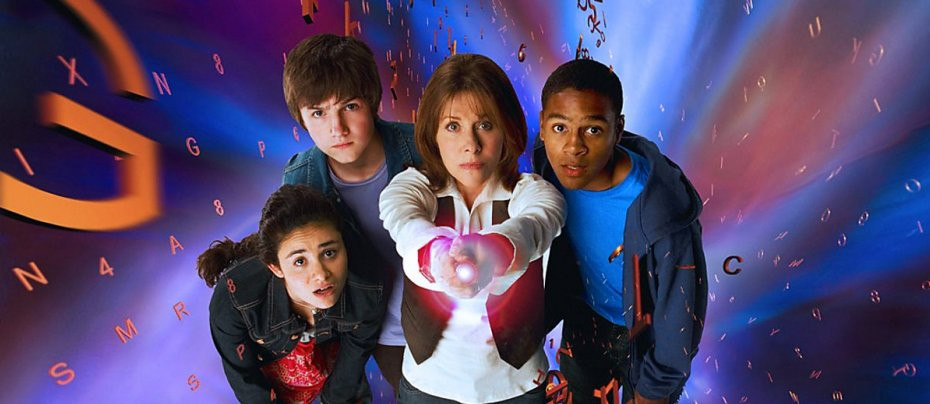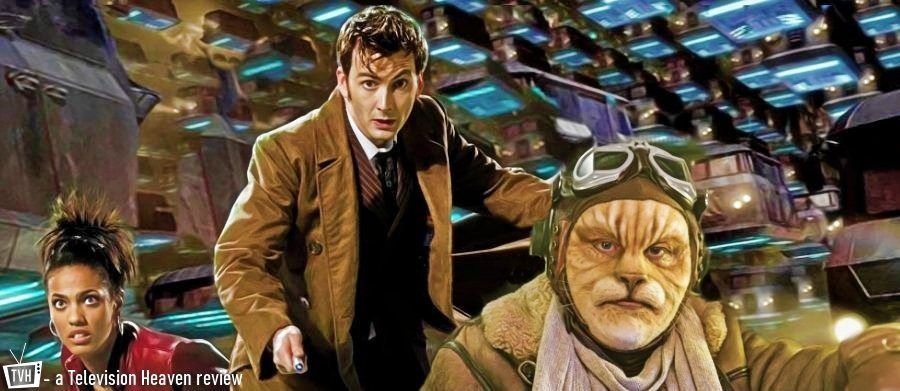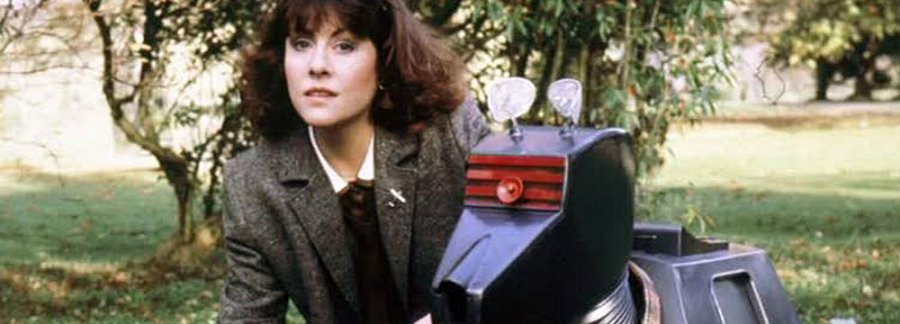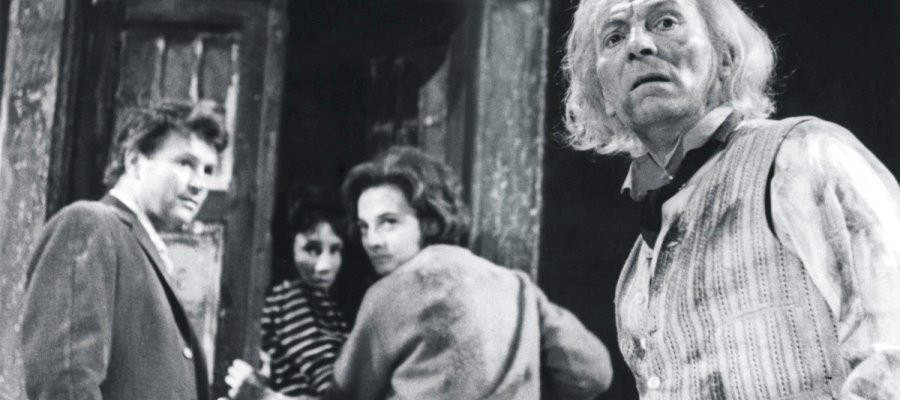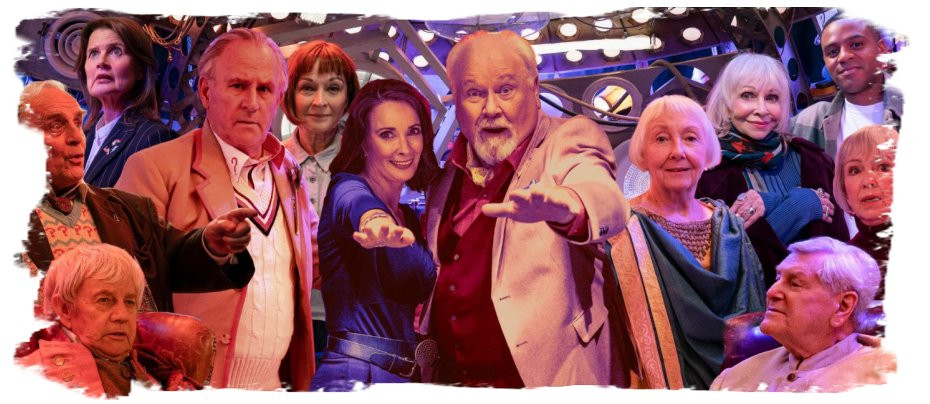
Dennis Spooner
In the illustrious annals of British television, few if any writers embody the skill, creative sweep and sheer talent to consistently entertain generations of viewers more than the man named Dennis Spooner, whose skill, professionalism and imagination gave us some of the best loved and most enduring classics over successive decades. Spooner's life story is as much the chronicle of the growth and development of a plethora of classic series as it is that of a complex and accomplished talent. And in the grand tradition of all the best tales, it began simply, only to end in tragedy.
The eldest of three children, Dennis Spooner was born on 1st December 1932, in Tottenham, North London. Like many children of his age early education was severely disrupted by the Second World War, which began on the day he was due to start school, although he did complete both primary and senior schooling, leaving at the age of 14 to take up work as a telegram boy for the General Post Office. A keen sportsman, Dennis had a trial for Leyton Orient Football Club and had just turned professional when he was called up to do his National Service in 1950. Having previously appeared in Ralph Readers Gang Show, Dennis joined the RAF's concert party and was stationed in Egypt where he became involved with the Forces Broadcasting Service. After National Service he returned to office work and in 1954, soon after marrying, he decided to try for a career in show business.
Dennis formed a partnership with Leslie Garbon and together they took their double-act around the country appearing at numerous theatres, the highlight of which was an appearance at London's famous Palladium theatre. However, they were never 'bill-toppers' and soon came to realise that perhaps their talents could be put to better use elsewhere. It was around this time that Dennis sent a half hour comedy script to comedian Harry Worth who was a popular entertainer at that time with his own television series. Worth liked the unsolicited script enough to send Dennis £5.00 and officially commission him to provide more material. Encouraged by this Dennis began writing full time and soon found that his talents were in demand for popular programmes such as Coronation Street, No Hiding Place and The Avengers.
In 1964 the production team of Doctor Who approached Dennis to write an historical story which closed the show's first season and he provided the highly acclaimed Reign of Terror, which placed the time travellers in the middle of the French Revolution in 1794. There was a gap of seven weeks between Doctor Who's first season and its second and during this time Dennis took up the post of Script Editor. Dennis trailed the outgoing David Whitaker for The Dalek Invasion of Earth, one of two season one stories that had been held over to start the new season. Although Dennis had inherited two stories that were 'in the can', he was also committed to several others that Whitaker had commissioned before leaving the show. The first of these was The Rescue, which introduced the first new travelling companion since the show had begun. Some years later Dennis reflected on the first story that he had to oversee: "The Rescue was already written when I came to the job as script editor, but I had to do a big rewrite as it was vastly overwritten. We'd have had to make each episode two hours long to film it!"
It was Dennis Spooner's idea to inject humour into the series, as he had always been keen to use humorous moments to break up scenes of high drama. "We realised that the show was destined for a long run and in television you have to learn very quickly what you are going to get away with, because once a series is established you can't change it." He later recalled. "With the second series we knew that whatever we established would mark the boundaries for a long time to come. The Romans was done for comedy, while in The Web Planet, which followed it, we wanted to see how far we could go being weird." Although The Romans was latterly dismissed as nothing more than a 'Carry On' romp, it was, in fact, one of the higher rated shows from that second season both in ratings and viewer appreciation figures.
Having spent eight months on the series, Dennis left to assist his friend and fellow Doctor Who writer Terry Nation on a new series for Lew Grade's ITC Company, called The Baron. It wasn't the first time that Dennis had written scripts for ITC commissioned shows, having previously written for Gerry Anderson's Fireball XL5, Stingray and Thunderbirds, but it was the start of a lifelong relationship with the company that would produce some of Britain's best loved and best remembered shows of the 1960's. Each one of them has today attained cult status around the world. In 1967 ITC offered Dennis a contract to write ten scripts a year and in collaboration with Richard Harris, he devised Man in a Suitcase. In the same year Dennis met Monty Berman, a highly respected television producer who had worked on shows such as Gideon's Way and The Saint. The two men hit it off instantly and soon formed their own company, Scoton Productions. The first show that they devised together was 1968's The Champions, which became an instant hit with viewers. However, Lew Grade, who had promised to finance a second series, had a change of heart and pulled the plug on The Champions, instead asking Spooner and Berman to come up with two new series instead. The first of these was Department S, the second was Randall and Hopkirk (Deceased). The latter very nearly didn't get made at all.
Randall and Hopkirk (Deceased) was born out of Dennis's fascination with the paranormal and two of his favourite movies, Topper and Here Comes Mr. Jordan, both of which centred round ghosts. However, Lew Grade was not sold on the concept and refused to put up the money. It was at this point that former Danger Man creator Ralph Smart got hold of the series outline and instantly fell in love with it. He even offered to write the pilot. As Dennis later recalled, it was Ralph Smart who convinced Lew Grade that the series would be a hit. "Ralph Smart was a sort of father of film and television as far as ATV went. He saw the proposal and thought it was terrific. He wanted to write the pilot and I was delighted when he did because that convinced Lew that we should make the series."
The next series that Spooner and Berman created was a spin-off from Department S, called Jason King. That was in 1971. Dennis continued to write scripts for television throughout the 1970's and 1980's turning his talents to shows such as UFO, Dempsey and Makepeace, The Professionals, Doomwatch, The New Avengers and the BBC detective series Bergerac. He also wrote for the theatre, his most successful play being A Sting in the Tail, and spent a large amount of time in the USA. A keen Bridge player, he would often partner Omar Sharif, and even wrote books on the game. Remembering his early days he would often turn out for the Showbiz X1 Football Team raising money for charitable causes. Dennis also returned to the theatre on a number of occasions, his last performance was with the Watford Rep Company as President Roosevelt in their production of Annie. On 20th November 1986, Dennis had a sudden heart attack from which he never recovered. He was 53.
The untimely passing of Dennis Spooner also seemed to signal the end of an entire breed of television screen-writer, the like of which it's doubtful we will ever see again. Diverse, prolifically inventive and genuinely responsible for helping to shape the viewing tastes of countless millions, Dennis Spooner remains a towering creative titan, whose subtle influence and creative legacy will continue to colour British television drama far into the future.
Published on February 20th, 2019. Written by Peter Henshuls for Television Heaven.


